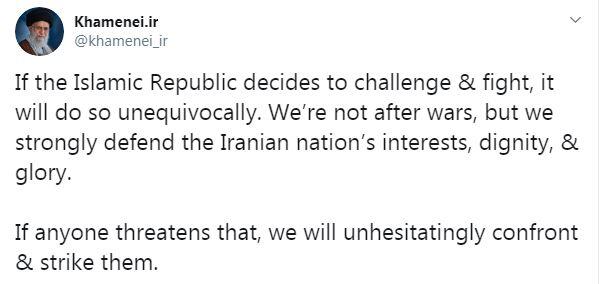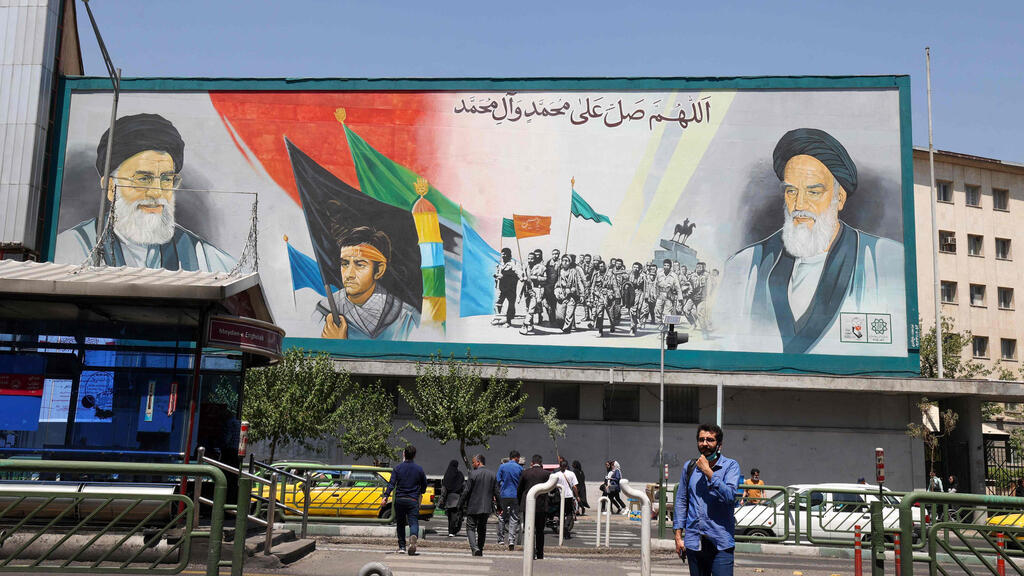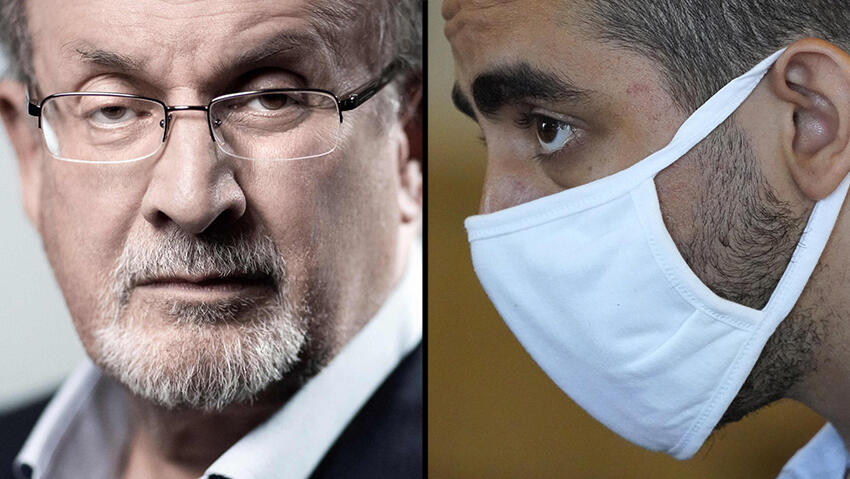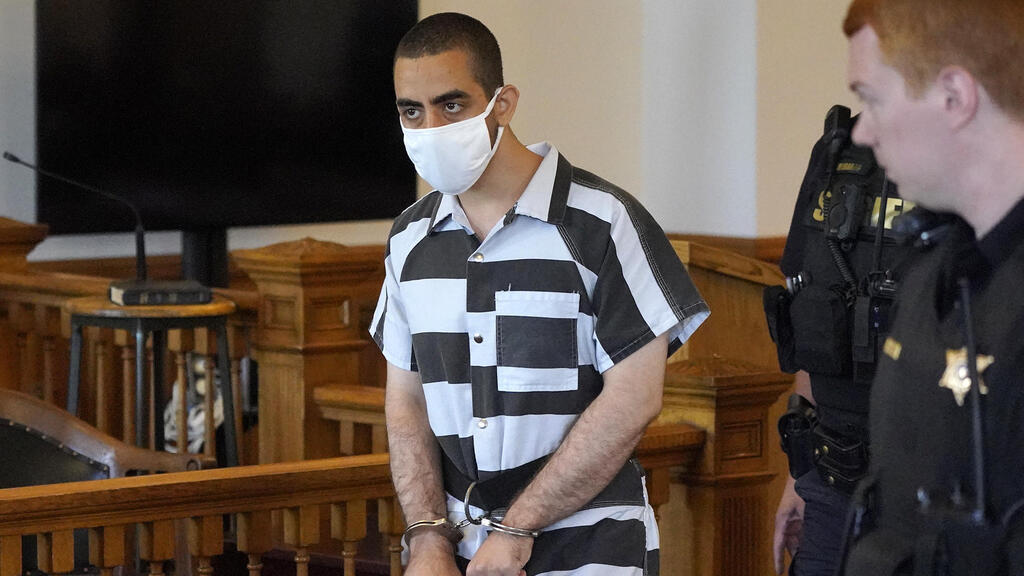A few weeks ago, novelist Salman Rushdie was interviewed by the left-liberal German magazine Stern, where he said that his current life is "relatively normal," having lived in hiding for years over constant death threats.
To remind you, in 1989, Ayatollah Ruhollah Khomeini, then Iran's supreme leader, pronounced a fatwa, or religious edict, calling upon Muslims to kill the novelist over his fourth novel, "The Satanic Verses," which some Muslims said contained blasphemous passages.
In the interview, Indian-born Rushdie, who became a U.S. citizen in 2016 and currently lives in New York City, said he was worried about threats to democracy in America, which were driven by hatred toward the accomplishments of liberalism, and constituted "a preliminary stage of fascism," he said.
Darkness indeed lurks among us. Islamists' social media accounts and Iranian state media expressed joy over the stabbing of the 75-year-old writer, whose only sin was the publication of a book through which he insulted, in the eyes of Muslim fundamentalists, the Prophet Muhammad.
There was something especially terrifying in the attack on Rushdie - the way in which this incident, which managed not to end in a foregone conclusion, become something terrible, yet obvious and not surprising in the eyes of the public.
The fanaticism has become trivial.
Hadi Matar, 24, whose social media accounts showed him express sympathy toward Shi'ite extremism and Iran's Islamic Revolutionary Guard Corps (IRGC), happened to hear that the detested novelist is coming to New York, not far from his hometown in New Jersey.
Upon learning this, he arrives at the location and storms the stage with a knife in hand. Matar likely heard that in 1989, Khomeini promised that whoever murders Rushdie and the publishers of his book, will be considered martyrs, or Shaheed, and "reach heaven".
The first takeaway from this incident is that fundamentalism and promises of violence, if left unattended, only grow stronger. Violence legitimized by religion will not dwindle away without intervention. This kind of violence is deceiving, because even when it seems dormant, it is actually only cooking up its next generation of martyrs.
The wannabe assassin was born way before 1989. It is doubtful he had ever even laid hands on the cover of Rushdie's "The Satanic Verses" before Saturday's attack.
The Iranian government has not yet officially responded to the incident, but state-run newspapers have already praised the attacker.
Another takeaway is the manner in which the incitement spreads. Matar was undoubtedly radicalized with the help of the social networks. Twitter continues to serve Iran's murderous apparatus by continuously allowing its leaders to maintain their inciting accounts, filled with calls for violence and antisemitism, while banning others from the platform over minor transgressions.
6 View gallery


Ayatollah Ali Khamenei tweets at Donald Trump as tensions spiral between Iran and U.S.
(Photo: Twitter)
Why do U.S. social media giants, such as Twitter and Facebook, provide free services to insane fundamentalists? The same fundamentalists who prohibit the use of these platforms in their own countries. I'll leave it to you to decide if it's corporate greed, or if it's truly for the sake of protecting the freedom of speech.
Unfortunately, fundamentalism isn't exclusive only to the radical Islam. Rushdie was right in his last interview when he expressed concern of America's future. He knew exactly what he was talking about. In America, the threat of white supremacy and Neo-Nazism has existed for years. This is where the American shooters - who break into synagogues and murder worshippers, per se - are cultivated.
Only last Thursday, a former U.S. marine tried to break into the FBI field office in Ohio, and died after a confrontation with the police. Turns out, that same man took part in the January 6 Capitol riots in Washington D.C., and social media accounts associated with him praised various right-wing conspiracy theories. One of his posts on social media read: “If you don’t hear from me, it is true I tried attacking the FBI."
What's the correlation between this case and the Rushdie stabbing? Both show trends of ignorance, prejudice, utilization of social networks for the purpose of radicalization, a persistent belief in unfounded and incorrect conspiracies, and readiness to use political violence.
For us here in Israel, the threat of radical Islam is something we are very familiar with. But in the expanding crusade against the values of the age of progress, there is room for everyone - including the extreme right-wing, extreme Islam, violent Buddhism (in Myanmar), and so on.
Rushdie, before he was stabbed, talked of hatred as a result of jealousy of the accomplishments of liberalism. He was talking about the far-right, but it obviously applies to the religious extremists that sought to kill him for half his life.
6 View gallery


A sign by the ayatollahs Ali Khamenei and Ruhollah Khomeini the day after the attempt to murder Salman Rushdie
(Photo: AFP)
The fundamentalism cannot triumph. Rushdie's book will now sell more than ever, his ideas will live on even if he does not.
Still, the fundamentalist's Sisyphean journey continues to roll its big boulder to the top of the hill, hoping and wishing that this time it'll manage to reinvent the world - one with no doubts or impurities.
And time after time, the heavy boulder rolls down the hill the same way it came up, until another fanatic who thinks he's up for the task gives it a try. The problem is that on its way down, that boulder has trampled on and will trample on many innocent people.





